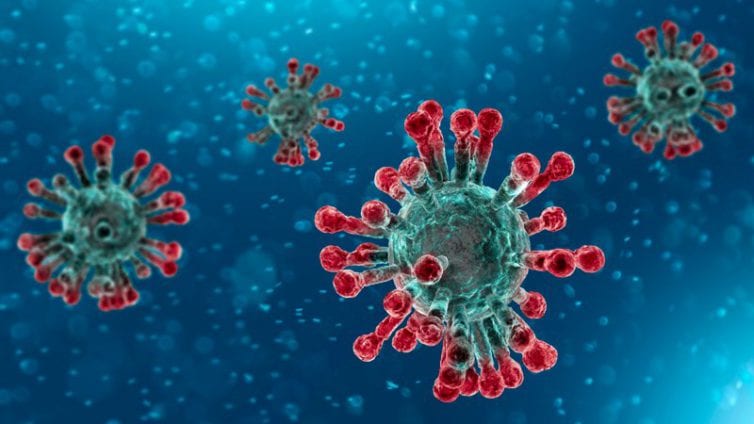Researchers in China have found that two different types of the new coronavirus could be causing infections worldwide.
In a preliminary study published Tuesday, scientists at Peking University’s School of Life Sciences and the Institut Pasteur of Shanghai found that a more aggressive type of the new coronavirus had accounted for roughly 70% of analyzed strains, while 30% had been linked to a less aggressive type.
The more aggressive type of virus was found to be prevalent in the early stages of the outbreak in Wuhan — the Chinese city where COVID-19 was first detected late last year.
But the frequency of this type of virus has since decreased from early January.
The researchers said their results indicate the development of new variations of the spike in COVID-19 cases was “likely caused by mutations and natural selection besides recombination.”
“These findings strongly support an urgent need for further immediate, comprehensive studies that combine genomic data, epidemiological data, and chart records of the clinical symptoms of patients with coronavirus disease 2019 (COVID-19),” they said.
Researchers cautioned that data examined in the study was still “very limited,” emphasizing that follow-up studies of a larger set of data would be needed to gain a “better understanding” of the evolution and epidemiology of COVID-19.
The findings were published in the National Science Review, the journal of the Chinese Academy of Sciences.
Travel restrictions
The study comes shortly after the WHO confirmed the fast-spreading virus had infected more than 93,000 people worldwide, with at least 3,100 deaths.
The vast majority of those cases have been reported in China, although the number of new daily infections overseas has now exceeded those in the world’s second-largest economy.
South Korea, Italy, Iran and Germany have all recorded sharp upticks in cases of the flu-like virus in recent days, with many countries imposing travel restrictions on virus-hit areas worldwide.
The outbreak has now spread to more than 70 countries, while the WHO has warned that COVID-19 could soon reach most, “if not all,” nations around the world.
Latest Stories
-
French for health: A new initiative by French Embassy in Ghana
3 hours -
Ghana slowly retracing steps back to path of macroeconomic stability – Deloitte
3 hours -
Ghana’s debt service-to-revenue ratio reached all-time high of 127% in 2020, highest in SSA – IMF
3 hours -
Ghana’s consolidation efforts under IMF progamme to continue to be based on revenue
3 hours -
GPL 2024/25: Hearts beat 3-1 Chelsea to return to winning ways
4 hours -
Ghana set to host second Flag All-Star Game in Accra
5 hours -
Angor CREMA: Empowering Ghana’s coastal communities for sustainable growth
5 hours -
The Legon VC… and childhood memories
6 hours -
The absurd inequality of climate work: Overcoming dilemmas in the green transition
7 hours -
ORAL team receives first dossier of ¢500m National Service ghost names scandal
7 hours -
AfroFuture’s Culture Beach Jam comes off Dec. 28 & 29
7 hours -
NDC gov’t to address first quarter expenditure after January 7 – Ato Forson to Ghanaians
7 hours -
Man sentenced to 5 years for vandalism at Parliament
7 hours -
Art for development: Isaac Koney tells his story
8 hours -
“I prayed for it” – Lady appreciates Joy Prime, Peace Bridals for free wedding gown
8 hours

